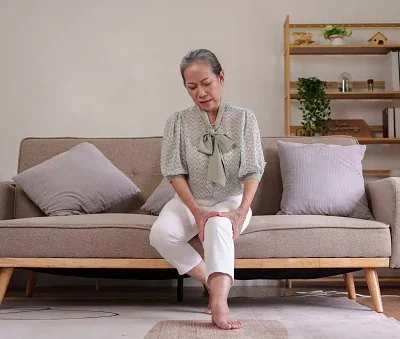
Making lifestyle changes, such as maintaining a moderate weight and exercising regularly, may also help you manage your symptoms. This helps realign your knee so your weight is no longer focused on the damaged part of your knee. An osteotomy can relieve symptoms of osteoarthritis, although you may still need knee replacement surgery eventually.
Knee osteoarthritis can be a debilitating condition that affects millions of people worldwide. Finding the right treatment, including medication, is crucial in managing the symptoms and improving quality of life. One common question that arises is, “What is the best tablet for knee osteoarthritis?”
There are many options, and some are available over the counter. People should be mindful that skin irritation is possible when applying topical medications. Most manufacturers recommend doing a patch test to check for skin reactions before applying the product to a larger area. Topical products containing capsaicin, menthol, camphor, and cannabidiol (CBD) may also help block pain signals.
Opioid pain relievers are discouraged for long-term treatment of chronic knee pain. “The milder narcotic tramadol might be appropriate for occasional use in some people,” says Dr. Day. The evidence for glucosamine and chondroitin is mixed, but they are safe.
There are a number of treatments to help relieve the symptoms. Having extra weight can place added stress on weight-bearing joints, such as the knees and hips. For some people who are overweight, losing 1 pound (lb) can relieve 4 lb of pressure on the knees. For someone with arthritis, pain and stiffness in the joints can make moving difficult. Medicines aim to manage pain, prevent joint damage, and maintain or improve mobility.
Nonsteroidal Anti-Inflammatory Drugs (NSAIDs)
One of the most commonly prescribed medications for knee osteoarthritis is nonsteroidal anti-inflammatory drugs (NSAIDs). These medications help reduce pain and inflammation in the affected joint, making movement less painful. Popular NSAIDs include ibuprofen, naproxen, and celecoxib.
Your doctor may also suggest you take a proton pump inhibitor to reduce the chance of gastrointestinal side effects. Sometimes they are serious, but most of the time they are not. Ask your doctor or pharmacist about potential side effects of any medicine you have been prescribed.
Acetaminophen
Another option for treating knee osteoarthritis is acetaminophen, which helps alleviate pain but does not have the anti-inflammatory properties of NSAIDs. Acetaminophen is often recommended as a first-line treatment for mild to moderate osteoarthritis pain, especially for those who cannot take NSAIDs due to other health conditions.
Glucosamine and Chondroitin
Some individuals with knee osteoarthritis turn to supplements like glucosamine and chondroitin to help manage their symptoms. While research on the effectiveness of these supplements is mixed, some people report experiencing pain relief and improved joint function after taking them regularly.
Corticosteroids
In cases of severe knee osteoarthritis flare-ups, corticosteroid tablets may be prescribed to reduce inflammation and pain quickly. These tablets are typically used on a short-term basis to provide immediate relief, but they are not recommended for long-term use due to potential side effects.
Conclusion
When it comes to finding the best tablet for knee osteoarthritis, it is essential to consult with a healthcare professional to determine the most appropriate treatment plan for your individual needs. Whether you opt for NSAIDs, acetaminophen, supplements, or corticosteroids, the goal is to manage pain and improve joint function to enhance your overall quality of life.




